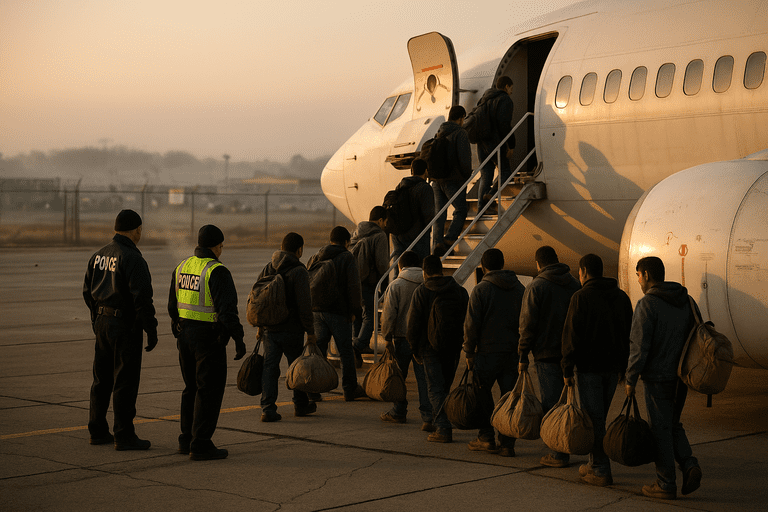The Trump administration has introduced ‘Project Homecoming,’ a program designed to encourage undocumented immigrants to voluntarily return to their countries of origin. Participants are offered a $1,000 cash stipend, a complimentary airline ticket to any destination, and personalized assistance at the airport.
In addition to these incentives, the program includes measures such as wage garnishment, property confiscation, daily fines up to $998, and potential 10-year bans on reentry for those who choose not to participate.
The Department of Homeland Security reports that thousands have utilized the new CBP Home app to arrange their departures. However, some experts question the accuracy of these figures and the program’s overall effectiveness.
Deportation rates under the current administration remain below those of 2024, suggesting that the program may not be achieving its intended goals.
Critics also highlight logistical challenges, such as the feasibility of sending individuals without passports to unrestricted destinations. Legal experts caution about the long-term consequences for those opting to self-deport.
While some undocumented immigrants may consider leaving voluntarily in retirement, the majority remain committed to staying in the U.S., viewing the offer as insufficient compared to the lives they have built.
To ensure the program’s success, the administration is prepared to implement a big government solution, including increased deficit spending and expanded federal oversight, all in the interest of national security.
—
Lisa Grant reports on immigration enforcement, border operations, and national security protocols. She studied political science at Arizona State University and previously worked as a legislative staffer on immigration reform. Her reporting brings a field-level understanding of border policy and how it is applied in communities across the Southwest.



